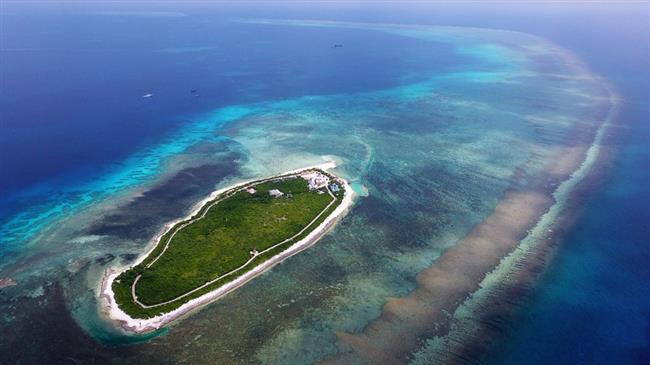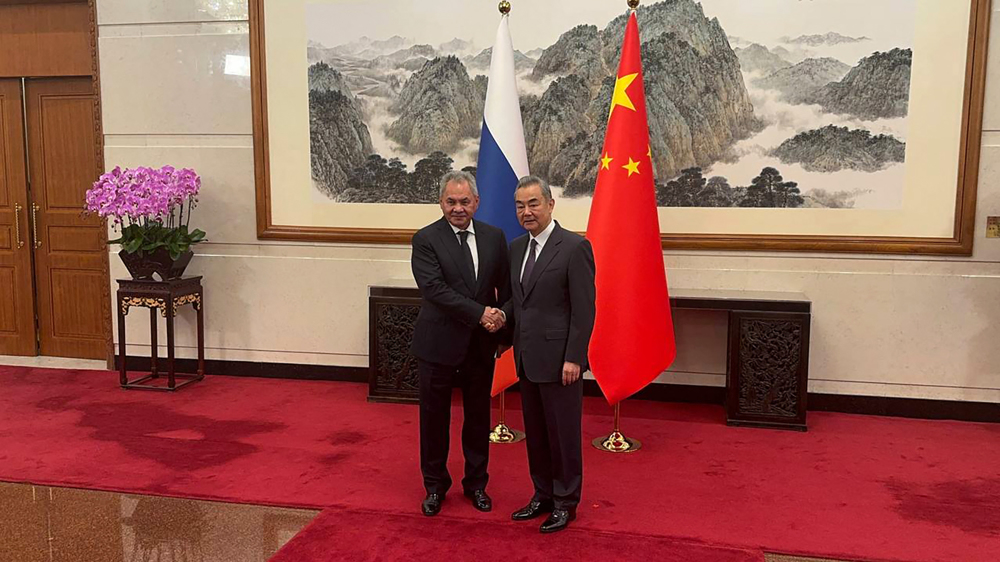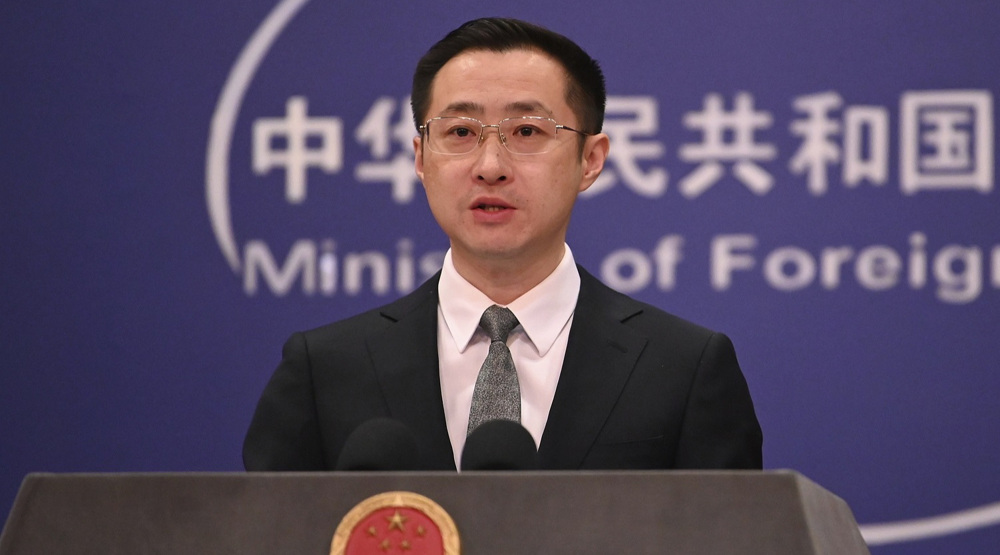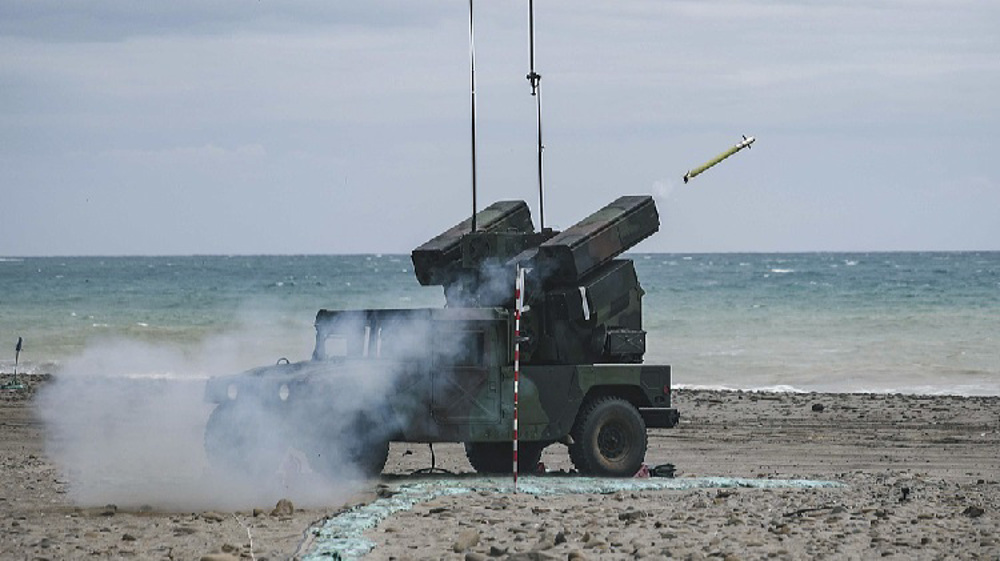China hits back at Australia, defends sovereignty in South China Sea
Beijing has defended its sovereignty and maritime rights in the South China Sea after Australia joined the United States in rejecting China’s territorial claims over a disputed group of islands in the strategic waterway, saying its rights have been historically established.
At a daily press conference in Beijing on Tuesday, China’s Foreign Ministry spokesperson Wang Wenbin said Chinese territorial sovereignty in the South China Sea would not be altered by unjustified accusations from any country.
“China firmly opposes the Australian side’s comments, which run counter to facts, international law and basic norms governing international relations,” Wang said.
“China’s territorial sovereignty and maritime rights and interests in the South China Sea were developed throughout the long course of history,” the Chinese official said. “They are consistent with international law, including the United Nations Convention on the Law of the Sea (UNCLOS) and cannot be altered by the unwarranted allegations of any country.”
Last Thursday, Australia filed a declaration with the United Nations (UN) rejecting China’s maritime claims around contested islands in the South China Sea and saying there was “no legal basis” to the Chinese claims.
“Australia rejects China’s claim to ‘historic rights’ or ‘maritime rights and interests’ as established in the ‘long course of historical practice’ in the South China Sea,” the declaration read.
A number of regional countries, including Vietnam, the Philippines, and Malaysia, are involved in territorial disputes with China in the South China Sea, in the Pacific Ocean. While Australia is not among them, it is well inclined against China and has in the past joined provocative maneuvers by the United States in the region.
The South China Sea is a gateway to major sea routes, through which about 3.4 trillion dollars’ worth of trade passes each year.
China claims the strategic waterway is its sovereign territory and has since 2014 built artificial islands on reclaimed reefs and installed military bases on them.
Australia to eye ‘national interests’ in cooperation with US in sea
Ties between Australia and China have deteriorated in recent months since Canberra backed a call by US President Donald Trump for an investigation into the origins of the new coronavirus. China has cut back on its imports from Australia, and that has in turn badly hit Australian businesses, which have criticized the government for unnecessarily alienating Beijing.
Australian Prime Minister Scott Morrison insisted on Tuesday that his country would follow its own national interests before boosting military cooperation with the US in the strategic waterway.
Morrison underlined that Australia had “the greatest of alliances and friendships with the United States” but would be guided by its own interests and his government would weigh up “the merits of each and every call” for additional action.
Meanwhile, Australian Defense and Foreign Ministers Linda Reynolds and Marise Payne are in Washington for high-level talks focusing on the so-called freedom of navigation exercises in the South China Sea.
South China Sea is not US’s Hawaii, China tells US
At the daily press conference on Tuesday, the Chinese Foreign Ministry spokesperson also lashed out at US Secretary of State Mike Pompeo for meddling in the South China Sea and reiterated that Washington’s attempt to destabilize the region would not succeed.
In a tweet on Saturday, Pompeo had accused Beijing of violating international law and taking more territory in the South China Sea, saying, “The South China Sea is not China’s maritime empire.”
Wang said China had always remained committed to international law and was working jointly with all regional parties to settle disputes through negotiations.
“We need to tell Pompeo,” he said, however, “[that] South China Sea is not US’ Hawaii. Countries in the region and those who love peace will not allow US politicians to stir up the issue.”
Wang called for joint efforts from regional countries to maintain peace and stability in the region.
On Monday, China had called on India in particular to join the nations resisting American hegemony.
VIDEO | UN rapporteur for occupied Palestinian territories visits UK
VIDEO | Palestinian Bedouin communities struggle amid Israel's settlement expansion
VIDEO | British activist on hunger strike for Gaza
VIDEO | Turkey under pressure to cut off oil supplies to Israel
Iran warns US against resumption of ‘maximum pressure’ policy
Israeli strikes kill 28 people in Lebanon
Hezbollah strikes major Israeli air force base for first time
Iran authorizes imports and sale of unleaded gasoline at free prices











 This makes it easy to access the Press TV website
This makes it easy to access the Press TV website